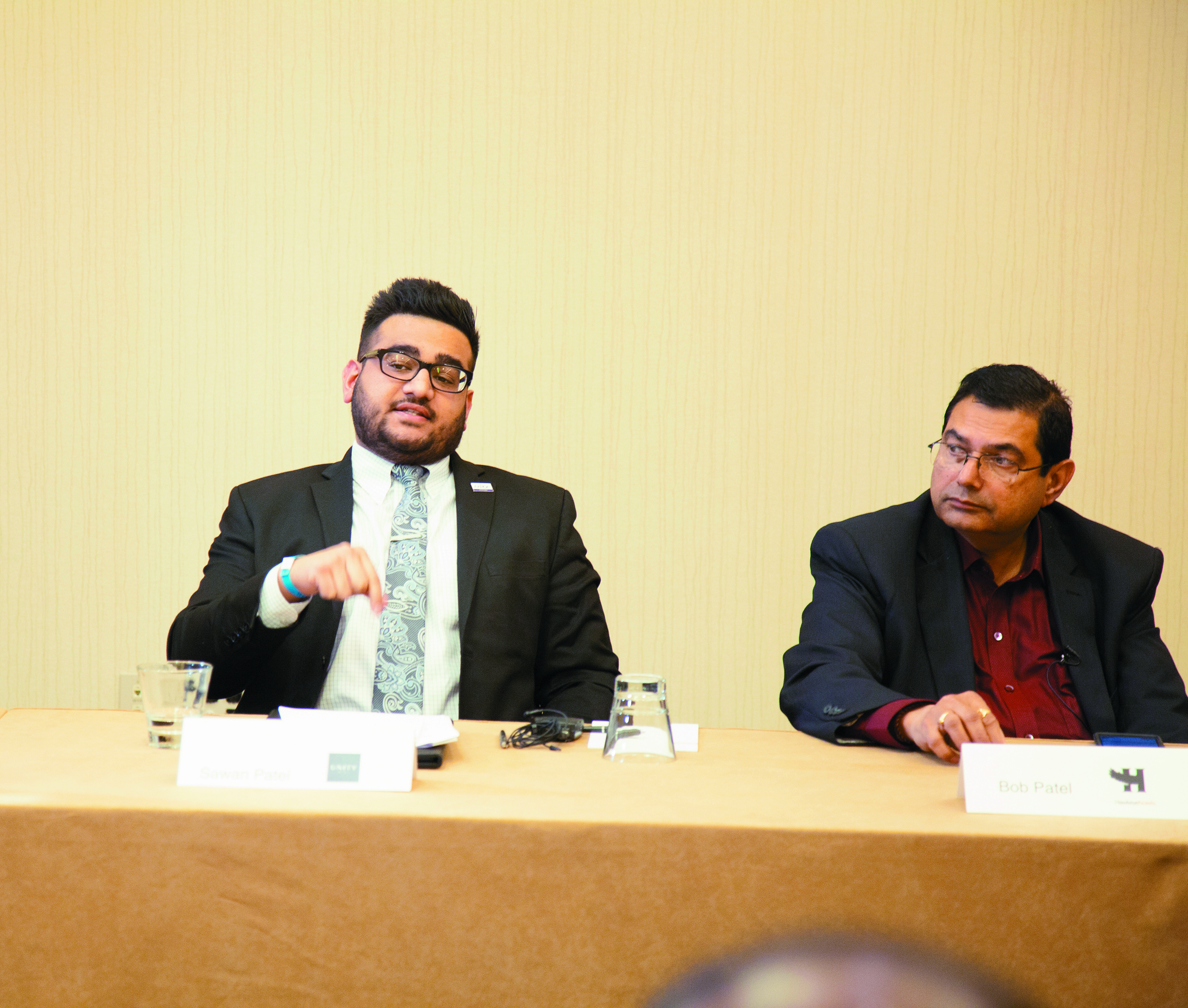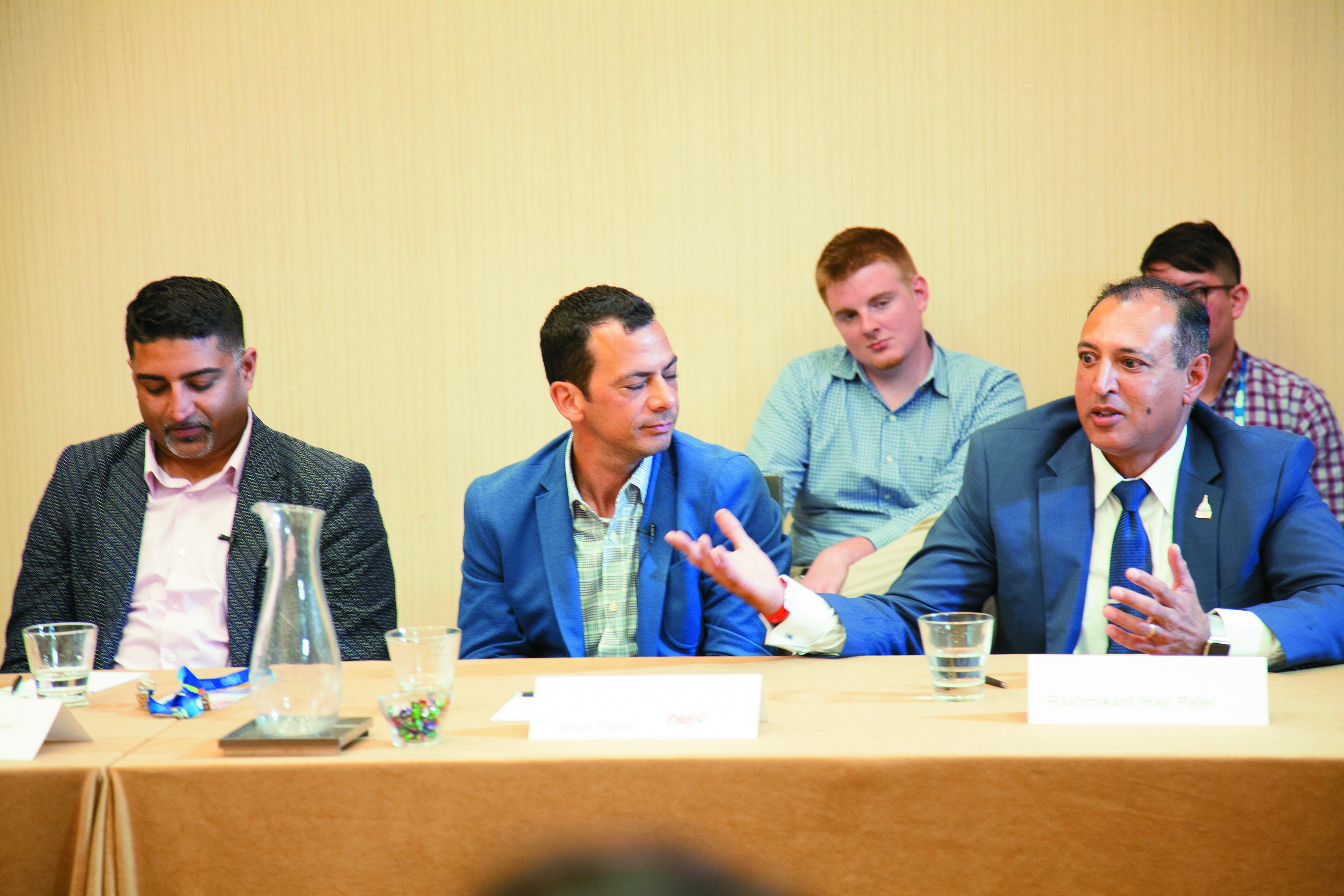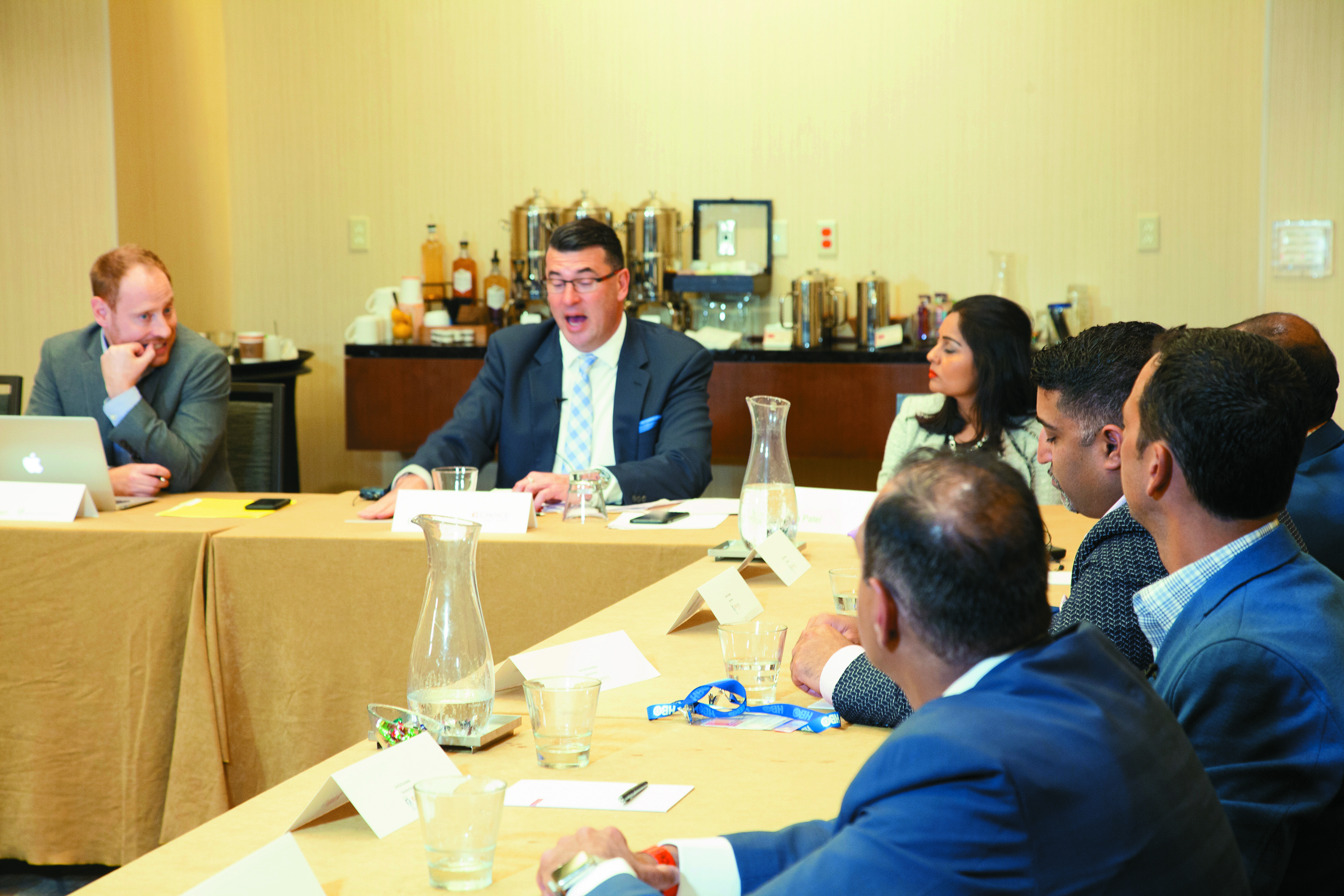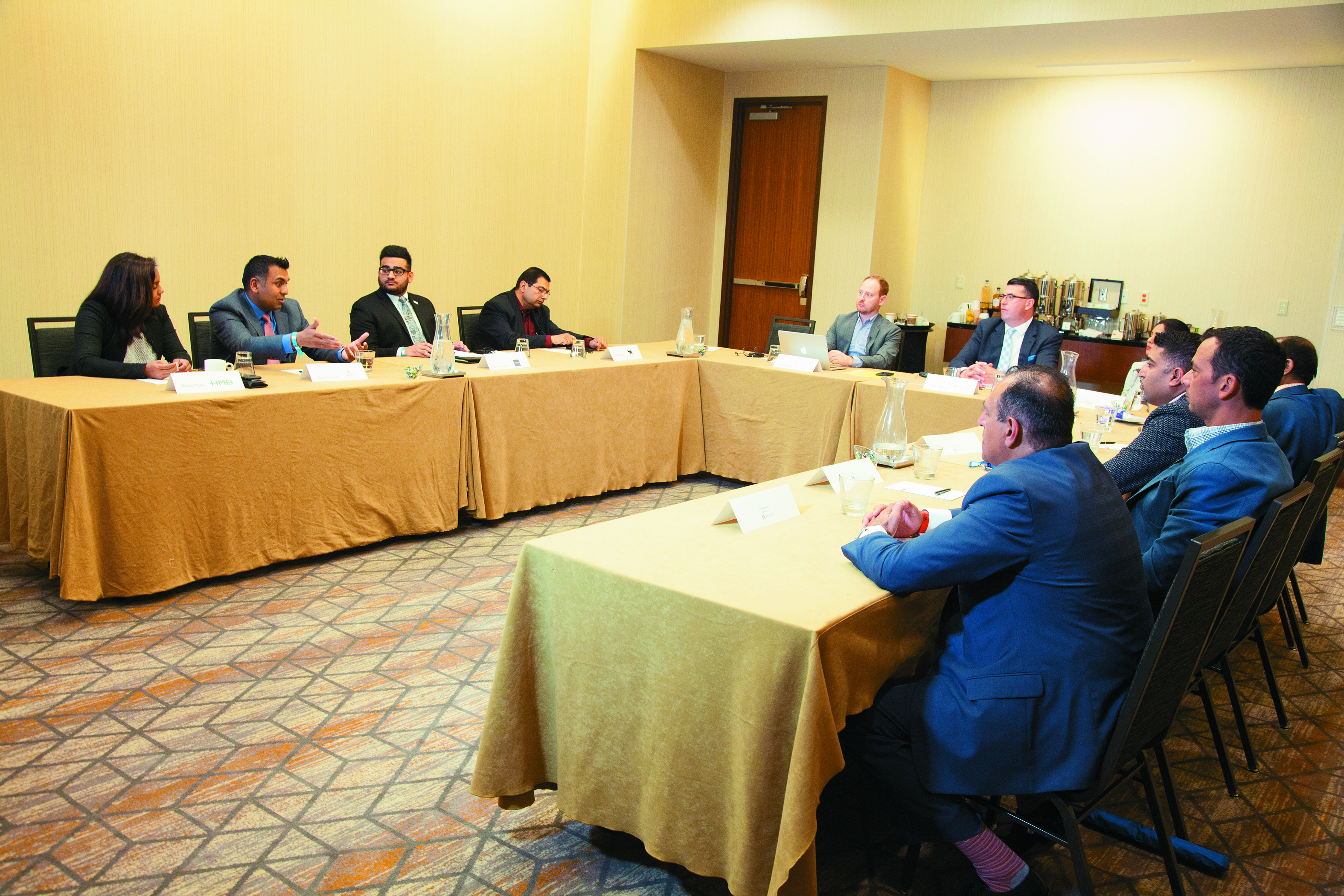Twelve hospitality professionals met at the recent Asian American Hotel Owners Association Convention & Trade Show in San Antonio to discuss online travel agencies, accountability within the sharing economy, the popularity of soft brands and more.
The Asian American Hotel Owners Association roundtable, which was sponsored by Choice Hotels, began with a question about advocacy, which is an activity near and dear to the heart of AAHOA. According to Chip Rogers, the group’s president and CEO, organized labor was able to achieve a “stranglehold” over business activity in Washington, D.C., and with the recent shift to a Republican majority in the House and Senate (not to mention the office of president), Rogers is optimistic about what he considers to be the “pro-business” party being given hold of the reins once again.
“We see some great opportunities, especially around beating back some of the forces dealing with organized labor,” Rogers said. “What they were able to do is take over the executive branch and through the Department of Labor, and through the [National Labor Relations Board] pass a lot of regulations that were very difficult on business owners across the board. We’ve seen that come to an immediate halt.”
“In the past few years we’ve done a great job at playing defense in our national advocacy front,” said Pratik Patel, principal at REM Hospitality. “We’ve been playing a lot of defense over the last decade or so when it comes to protecting our industry and protecting our businesses. It’s our turn to start playing a little offense, where we are able to create more jobs and continue to grow everybody as a whole.”
Patel may be excited to initiate change within the industry and the larger business landscape, but he acknowledges there are a multitude of challenges in the way. For example, he said online travel agencies continue to overstep their bounds, the short-term rental market is growing at a record pace and frivolous lawsuits abound as a result of the Americans with Disabilities Act, a point that Rashmikant Patel, president at Krishan Hospitality, agreed with.
“It’s not that we don’t want to comply; we want to comply with the ADA and we’re not being sued by the ADA,” he said. “We’re getting sued by these lawyers who just took a fly-by-night to make a quick buck. And right now we’ve got members who are scared; they don’t know what to do. And they’re just settling out of court, giving up good money.”

Build It Big
On the topic of hotel development, the industry’s unfettered supply growth was a concern. Dina Patel of SRK Management and female director - Western Division, AAHOA, said that Houston, a market that dodged many of the negative elements of the 2008 recession, is now sucking wind as a result of overdevelopment after the 2017 Super Bowl.
“Downtown [Houston] alone had 2,000-plus rooms, and we still have… 200-plus hotels in the pipeline,” she said. “We did really well during the recession, but after the Super Bowl everyone went into development mode. And many developers are being forced to develop due to financial reasons.”
For Jesal Patel, principal of Patel Realty, the development dilemma in the U.S. is difficult to swallow because he sees so many holes for demand remaining throughout the country, yet these areas remain unattractive to developers.
“The one exit on the highway where we had a hotel 12 years ago… now there are seven properties on that exit,” he said. “People take the easy way out and cannibalize visitors. I would urge our membership to… instead of [developing across from] the next hotel, take the next exit where there isn’t a property already.”

The Next Generation
Jesal Patel went on to question the industry’s fixation with millennial travelers, stating that catering to them can be problematic because they prefer small spaces and communal atmospheres, which are not always in line with other guests’ needs, including business travelers or families.
Brian Quinn, VP of franchise development for Choice Hotels International, disagreed on some points, stating that the concept of being “alone together” doesn’t belong only to millennial travelers, and many of the other concepts that have grown in popularity since their emergence aren’t going away any time soon.
“About 70 percent of the behaviors of that millennial group… are adopted within 36 months by all the other demographic groups,” Quinn said, elaborating that the millennial desire for small guestrooms may be a fad, but the rest of their driving interests may stick around. “The idea around being smart about food-and-beverage and being sensitive to being able to [charge devices] and some of the other things, that’s here and that’s not going away. You see every business planning for that.”
Vipul Dayal, president of VNR Management, said he operates hotels in San Francisco, and the push to remain technologically relevant is a strain on his business. While this pressure comes from being located near Silicon Valley, Dayal is also surrounded by many hotels that have redesigned themselves for millennials, forcing his properties to evolve as well.
“We were one of the first Days Inns to have keyless check-in, for example, and it was also one of the first hotels to go completely paperless,” he said.

The Direct Dilemma
Are the industry’s largest brands doing everything they can to drive direct bookings? When faced with this question, Bob Patel, CEO of Hawkeye Hotels, said brands are doing a good job of controlling fees paid by operators to OTAs, and said it is rate parity that is driving travelers to brand portals, as opposed to those brands offering lower rates than OTAs.
“It’s also up to the revenue managers. Sometimes you have to use the OTA to fill [your properties], but it’s up to you to decide when you need to open up those channels,” he said. “But we’re not relying on [OTAs].”
Quinn said deciding on the means of pushing these direct bookings and deciding what kind of relationship operators should have with OTAs is something the entire industry has struggled with.
“I think we’ve finally got the calibration right around this,” Quinn said. “And you see some chinks in the armor on their side… because I think they see a little bit of the writing on the wall, too. They overreached around their pricing and their transparency, and there’s going to be a bill to pay for that, as well.”
Where there’s discussion of OTAs, Airbnb is never far behind. When asked if their franchised properties have felt the sting of Airbnb, Sawan Patel, managing partner at Unity Hotels Group, said Houston’s Super Bowl LI didn’t leave as large an impact on the region’s hotels as was expected or desired. He blames Airbnb for providing more options in a short period of time.
“There was a STAR report and when they analyzed the numbers, it only came down to that the rates were increased by $4,” he said. “There wasn’t much competition, there wasn’t anything that could have promoted and helped hotels get those customers because of Airbnb doing all this business. So it hurt us more than helped us.”

Going Soft
The discussion shifted to soft brands, which Jayesh Patel, CFO of Athena Companies, said are an excellent vehicle for providing unique experiences while retaining access to all the support brands provide, such as powerful reservation systems.
“With a lot of historical buildings, you cannot touch anything on them. You cannot make it look like a hotel,” he said. “If you can’t find anywhere to build, but you find a unique property that can fit 30, 40, 50 [rooms or] whatever… sometimes you cannot do anything to the exterior, [but] you can put a soft brand on it.”
Binita Patel, VP of HMB Hotels, said her experience in the South Beach market in Miami shows the interest travelers and hotel companies have in soft brands. Many hotels in that region have shifted to soft brands to gain access to operations and booking software owned by the big brands, a trend she said is only building steam.
“Typically, South Beach has been an independent market,” she said. “We had to dial into the [soft brand’s] software because we realized there was so much more power there than what we could get on our own.”
In closing, those in attendance were asked what it is about the industry that keeps them up at night, and what makes them excited to wake up in the morning to return to hospitality. Heetesh Patel, administrator at Neves Investments, drew on the family-focused atmosphere of AAHOA, as well as the hard work of the previous generation and the values of the next generation as reasons to stay positive about the industry and its prospects every day.
“I try not to let anything keep me up at night,” he said. “I try to go to sleep with a blank slate. I think what gets me up in the morning is just being thankful for being born in this country, and my parents doing the work they did to put me in this position I’m in. Being thankful, that’s what gets me up every morning.”
